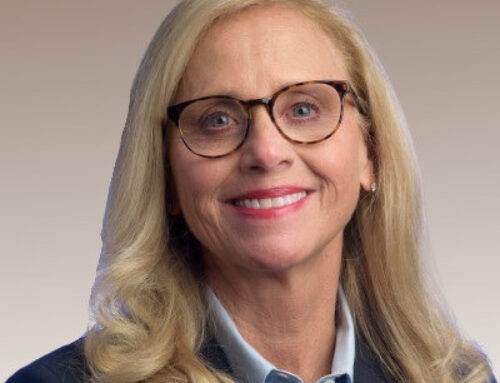Jack McElroy: ‘Bad actors’ seize stage in state’s public records debate; school districts try to block request for Islam curriculum
A public records request for documents related to the teaching of world religions as part of world history in Tennessee middle schools has caught some attention around the state – mainly because it involves the hot-button issue of Islam.
Question of Islam: Knox Schools asked to show its curriculum
The American Center for Law & Justice made the request, penned by its lawyer in Franklin. But many school districts around the state have denied it after their lawyer advised them they did not have to provide records to someone who is not a Tennessee citizen. He reasoned that the Franklin lawyer was asking on behalf of the Washington D.C.-based ACLJ, which is not a Tennessee citizen.
The Office of Open Records Counsel has made clear in opinions (Nonprofit Corporation and Fee Waiver, and Requests from Corporations and Fees for Records Sent) “that when an individual who is making a request on behalf of a corporation is able to produce government issued photo identification that includes a Tennessee address, any record that is responsive to the request and is not confidential is required to be made accessible to the requestor.”
“… the records custodian would not be able to deny a TPRA request from a Tennessee citizen on the basis that the requested records will ultimately be given to others who do not have direct rights under the TPRA,” Open Records Counsel Ann Butterworth wrote in the latest opinion on the matter on Sept. 23. She then noted that ACLJ, an out-of-state organization, would not have direct rights to Tennessee records.
Based on that, it sure doesn’t look like the denial will hold up for long. Which begs the question of why waste time and money then?
The denial comes from the very government entities in Tennessee that have been trying the hardest to reduce and stop public records requests across the state. Their legislation, filed through the Tennessee School Boards Association and the subject of summer public hearings, would allow all government agencies to charge citizens to view public records. (Currently you have to pay for copies, but if you can’t afford that under our law, you can inspect for free. The school boards’ legislation gets rid of the free inspection option, creating a system where if you have money, you can see government records. But if you don’t, you can’t. Interestingly, ACLJ does have money, is seeking copies, so presumably would pay per-hour compilation fees under the current rules.)
Bad acting on both sides?
Jack McElroy, the editor of the Knoxville News Sentinel, and president of the Tennessee Press Association, wrote a column (Bad actors seize stage in state’s public records debate) noting that the term ‘bad actors’ keeps coming up in the debate over the TSBA legislation. But in this case, if a large records request is “bad acting” on the face of it, then the obstructionist response by the school districts squashing it on a questionable technicality seems likewise.
McElroy points out how the response of the school boards’ lawyer — rallying the districts to fight the request — lacks the sort of “good faith” action we might expect from government that could actually create some efficiency and maintain a culture of transparency. Instead, they seem to prefer the “just say no” approach that tends to point toward a courtroom. (If this seems familiar, you might be thinking of the current public records case against Sumner County Schools, where the school district has paid a Nashville law firm more than $100,000 of taxpayer money to defend its actions rejecting a very small public records request on the basis that it was received by email and not the U.S. Postal Service.)
“A losing legal battle costly to taxpayers appears to be in the offing, but the school board association doesn’t care,” McElroy writes in his column about the world religion request. “(TSBA) has been pushing for permission to charge citizens to ‘inspect’ records, as well as copy them. So the group has an interest in this dispute being as ugly as possible to demonstrate how onerous the open records law can be.
Following is McElroy’s column, Bad actors seize stage in state’s public records debate:
The term “bad actors” keeps coming up in the debate over whether governments should be able to charge citizens fees to see public records.
The law works well when both sides act in good faith. But what happens when public-records “terrorists” simply want to harass the government? Or when office holders want to deny requests for personal reasons?
Now bad actors have taken the stage across the state with a request for information on how schools are teaching about Islam.
On one side is the American Center for Law & Justice, a Washington, D.C.-based nonprofit organization founded by televangelist Pat Robertson to advocate and litigate for conservative religious causes.
The ACLJ hit all 146 Tennessee school districts with a records request that seems designed to be burdensome. The first item asks for “Any and all records containing or otherwise concerning communications between and among any officials, employees, representatives, and/or agents of the Knox County Schools concerning any world religion.” The request goes on for 12 paragraphs seeking “any and all” records related to curriculum, standards, policies, guides, teachers, texts, materials, field trips, tests and assignments. Sometimes the term “world religion” is included. Other times the broader phrase “social studies” is used.
Only one paragraph gets at all specific: a request for “assignments or activities in which students … are asked and/or required to recite prayers and/or chants, speak in Arabic or other foreign language(s), or engage in any other speech and/or conduct associated with any world religion.”
That’s at the heart of the issue. The ACLJ’s request comes because parents in a few Middle Tennessee counties complained about their children memorizing the five pillars of Islam and having to write, from the first pillar, “Allah is the only God.”
The request is overly broad. But districts could make good-faith efforts by gathering the most obviously responsive documents while asking the ACLJ for more clarity and prioritization. Because the request is to copy records, not just see them, the districts also could charge per-hour labor fees. A rough estimate of costs might help the ACLJ focus on what it really wants.
Instead, the Tennessee School Boards Association is rallying districts to fight. The group has distributed a sample letter by a Nashville lawyer/lobbyist that rejects the request as invalid because the ACLJ is not a citizen of Tennessee.
The ploy is the same one County Attorney Bud Armstrong tried when the News Sentinel was seeking copies of Knox County emails. Judge David Duggan quickly ruled against that specious argument. In this case, a Nashville lawyer actually signed the ACLJ’s letters of request, so a citizen of the state clearly is involved.
Good actors, unfortunately, may pay the price.




